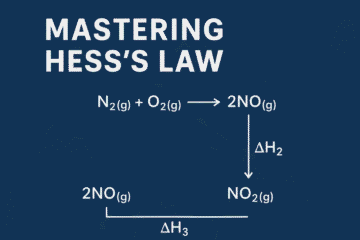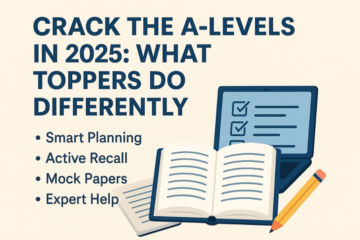Choosing your A-Level subjects can feel like one of the biggest academic decisions of your life. These three or four subjects will influence not only your university options but also your long-term career opportunities. The choices you make now can either keep multiple doors open or limit you to a narrow set of options.
One of the smartest ways to approach A-Level selection is to focus on subject combinations that work well together and are valued by universities for specific career paths. This is because many higher education courses prefer, or even require, certain subjects. Even when they don’t, some combinations naturally build a stronger skill set and give you a competitive edge.
In this guide, we’ll break down the Top 3 A-Level combinations for some of the most popular university paths—Medicine, Law, and Engineering while also giving you practical tips to decide if they’re right for you.
Why A-Level Combinations Matter
A-Levels aren’t just a box-ticking exercise for university entry—they shape your academic profile, your transferable skills, and even your confidence in tackling challenging topics later in life.
Here’s why the right combination matters:
-
University Requirements – Many degrees have compulsory A-Level prerequisites.
-
Skill Synergy – Some subjects complement each other, making concepts easier to grasp.
-
Flexibility – The right mix can keep you open to several career paths in case your plans change.
-
Competitive Advantage – Strong subject pairing signals to universities that you can handle demanding, varied workloads.
Poorly chosen combinations, on the other hand, can make university entry more difficult, limit career changes, or leave you with gaps in your knowledge.
How We Chose the Top 3 Combos
The three combinations listed below have been selected because they:
-
Appear frequently in successful university applications.
-
Build both specialised and transferable skills.
-
Allow a degree of flexibility if career plans shift.
-
Have a history of leading to strong academic and career outcomes.
1. Medicine & Healthcare: Biology • Chemistry • Mathematics or Physics
If you aspire to become a doctor, pharmacist, nurse, biomedical scientist, or researcher in the life sciences, this is one of the most powerful combinations you can choose.
Why This Combination Works
-
Biology provides deep knowledge of living organisms, anatomy, and physiology—crucial for understanding the human body.
-
Chemistry is fundamental to pharmacology, biochemistry, and understanding chemical processes within living systems.
-
Mathematics or Physics improves your ability to interpret data, understand quantitative research, and think logically.
Skills You’ll Develop
-
Analytical and problem-solving skills
-
Data interpretation and statistical understanding
-
Laboratory skills and experimental design
-
Critical thinking in scientific contexts
Career Paths Opened by This Combo
-
Medicine
-
Dentistry
-
Veterinary Science
-
Pharmacy
-
Biomedical Sciences
-
Physiotherapy
-
Public Health Research
Potential Challenges
This combination is rigorous. Biology and Chemistry both require strong memory skills, while Maths or Physics add an abstract, problem-solving element. The workload is intense, so time management becomes essential.
Tip: If you want to strengthen your science foundation, consider getting extra help from an A Level Chemistry tutor to master complex topics early.
2. Law, Politics & Humanities: English Literature • History • Politics
If you’re drawn to critical thinking, persuasive argumentation, and exploring human behaviour and governance, this combination is a classic pathway to degrees in Law, International Relations, and Humanities.
Why This Combination Works
-
English Literature develops analytical reading, essay writing, and the ability to dissect complex ideas.
-
History builds skills in evaluating evidence, understanding cause and effect, and presenting logical arguments.
-
Politics deepens your understanding of political systems, international relations, and decision-making processes.
Skills You’ll Develop
-
Persuasive writing and structured argumentation
-
Critical evaluation of sources and evidence
-
Public speaking and debate skills
-
Broad awareness of societal and cultural contexts
Career Paths Opened by This Combo
-
Law and Legal Practice
-
Civil Service and Diplomacy
-
Journalism
-
Academia and Teaching
-
International Organisations
-
Policy Development
Potential Challenges
While these subjects are less technical than STEM options, they demand a heavy reading and writing workload. Essays require depth, clarity, and consistent structure, and you must keep up with current affairs for Politics.
3. Engineering & Physical Sciences: Mathematics • Physics • Further Mathematics or Computer Science
Engineering is one of the most versatile and in-demand fields globally, but it requires an outstanding grasp of numerical reasoning and scientific principles.
Why This Combination Works
-
Mathematics is the backbone of engineering, from structural calculations to algorithms.
-
Physics explains the principles of mechanics, electricity, and energy systems—critical in engineering applications.
-
Further Mathematics or Computer Science adds either deeper mathematical capability or modern technical expertise for areas like robotics, AI, and software development.
Skills You’ll Develop
-
Quantitative analysis and modelling
-
Problem-solving in real-world contexts
-
Logical and algorithmic thinking
-
Application of theory to design and innovation
Career Paths Opened by This Combo
-
Mechanical, Civil, Electrical, or Aerospace Engineering
-
Data Science
-
Robotics
-
Software Development
-
Renewable Energy Research
-
Architecture (with additional qualifications)
Potential Challenges
Physics can be conceptually challenging and requires a strong mathematical foundation. If you struggle with mechanics or advanced formulas, it’s worth seeking early support from an A Level Physics tutor to avoid falling behind.
Honorable Mentions: Other Strong A-Level Trios
While the three combinations above dominate in terms of popularity and long-term value, there are other excellent options depending on your interests:
-
Business & Economics Path: Mathematics • Economics • Business Studies
-
Creative Arts Path: Art & Design • English Literature • Media Studies
-
Social Sciences Path: Psychology • Sociology • Biology
How to Decide Which Combo is Right for You
Even if a combination is considered “top tier,” it may not suit your personal strengths or ambitions. Here’s a decision-making framework:
1. Identify Your Career Interests
Think about the subjects you enjoy and the kind of work you see yourself doing. Do you prefer hands-on lab work, persuasive communication, or technical problem-solving?
2. Map Out University Requirements
Check general degree requirements for your chosen career area. This prevents you from missing out on opportunities later.
3. Balance Challenge with Ability
Choose subjects that stretch you academically but don’t set you up for unnecessary struggle.
4. Keep an “Escape Route”
At least one subject should be versatile enough to support a different career path in case you change your mind.
Common Mistakes to Avoid
-
Ignoring Prerequisites – Picking Psychology without Biology when aiming for a Psychology degree can create roadblocks.
-
Overloading Similar Subjects – Too much overlap can limit your breadth of skills.
-
Choosing Based on Perceived Ease – Universities respect rigour over simplicity.
-
Following Friends Blindly – Your combination should match your strengths, not your social circle’s choices.
Final Thoughts
Your A-Level subjects are more than just qualifications—they’re stepping stones toward your university education and your career. By picking combinations that align with your interests, match degree requirements, and build complementary skills, you can position yourself for success long after school ends.
The three combinations we’ve covered—Biology • Chemistry • Mathematics/Physics, English Literature • History • Politics, and Mathematics • Physics • Further Mathematics/Computer Science—are time-tested, widely respected, and open doors to some of the most rewarding career paths.
However, the “top” choice will always depend on your personal goals, your strengths, and your willingness to work hard.
Choose thoughtfully, commit fully, and your A-Levels can be the launchpad to an exciting academic and professional journey.



